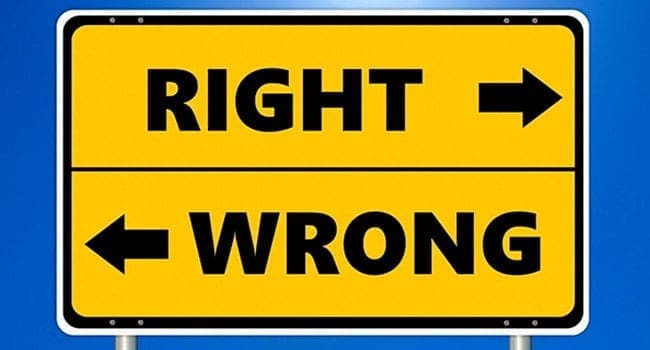 Phrases like, “It’s a dog eat dog world,” and “Nice guys finish last,” suggest it doesn’t pay to be kind or ethical. If you want to make it in this world, you apparently have to drive a hard bargain and look out for No. 1.
Phrases like, “It’s a dog eat dog world,” and “Nice guys finish last,” suggest it doesn’t pay to be kind or ethical. If you want to make it in this world, you apparently have to drive a hard bargain and look out for No. 1.
Not true, say the statistics.
According to the statistics, companies that are good corporate citizens, practise sustainability and are able to attract and retain employees outperform Standard and Poor’s 500 companies.
This really does make sense. Companies that cut corners, exploit employees and don’t give long-term customer support may be extremely profitable in the short term. But they aren’t sustainable. Eventually, customers become frustrated by the lack of service, good employees find better places to work, and the company faces legal expenses defending their unethical practices.
Companies that are ethical understand the importance of a good public image, employee satisfaction and having repeat customers. Of course, having professional expertise and a good product are important. But in a competitive market, if you want to stick around, it pays to do the right thing.
In 2008, a number of financial institutions failed in the United States. Certain companies, however, moved through the crisis with relative ease. They avoided selling sub-prime mortgages on ethical grounds. They didn’t feel that they were in the best interest of their customers and they didn’t want to ask their employees to sell products they didn’t believe in. Although short-term profitability was sacrificed, these companies won out in the long term.
The same is true in retail business. Whether stores are locally owned or corporate giants, those that remain open are those that behave in an ethical manner and value both long-term employees and their customers. If we ask ourselves where we like to shop and who we like to do business with, it will most likely be where we not only get a good product at a fair price, but also consistently good service.
Author and radio personality Earl Nightingale tells us, “Excellence always sells.”
What is true in business is true in life. We are all trying to sell something, be it an idea or a product. As a teacher, if I’m not excellent in what I do and I don’t model what I’m teaching with excellence, my students will not buy what I am presenting. I may have some success in the short term if I’m merely able to entertain, but long-term success in any field requires integrity and expertise.
Of course, many businesses aren’t good corporate citizens and they seem to do very well. Their stockholders and top executives reap tremendous financial benefits. They seem to get away with exploiting their workers and the environment.
Government regulations, labour organizations and consumer advocacy groups are needed to keep these companies in check, and these institutions are part of the reason why unethical companies eventually fail. But it almost seems that there is a greater force at work in the world.
The bottom line is that we are rewarded when we do the right thing.
When we are selfish, unkind and don’t do our very best, we may enjoy short-term benefits.
If we seek long-term success and happiness, however, we know we need to treat every person as the sacred individuals that they are.
The goodness that we share always comes back to us. It really does pay to be kind and ethical. Nice guys do finish first.
Gerry Chidiac is an award-winning high school teacher specializing in languages, genocide studies and work with at-risk students.
The views, opinions and positions expressed by columnists and contributors are the author’s alone. They do not inherently or expressly reflect the views, opinions and/or positions of our publication.


